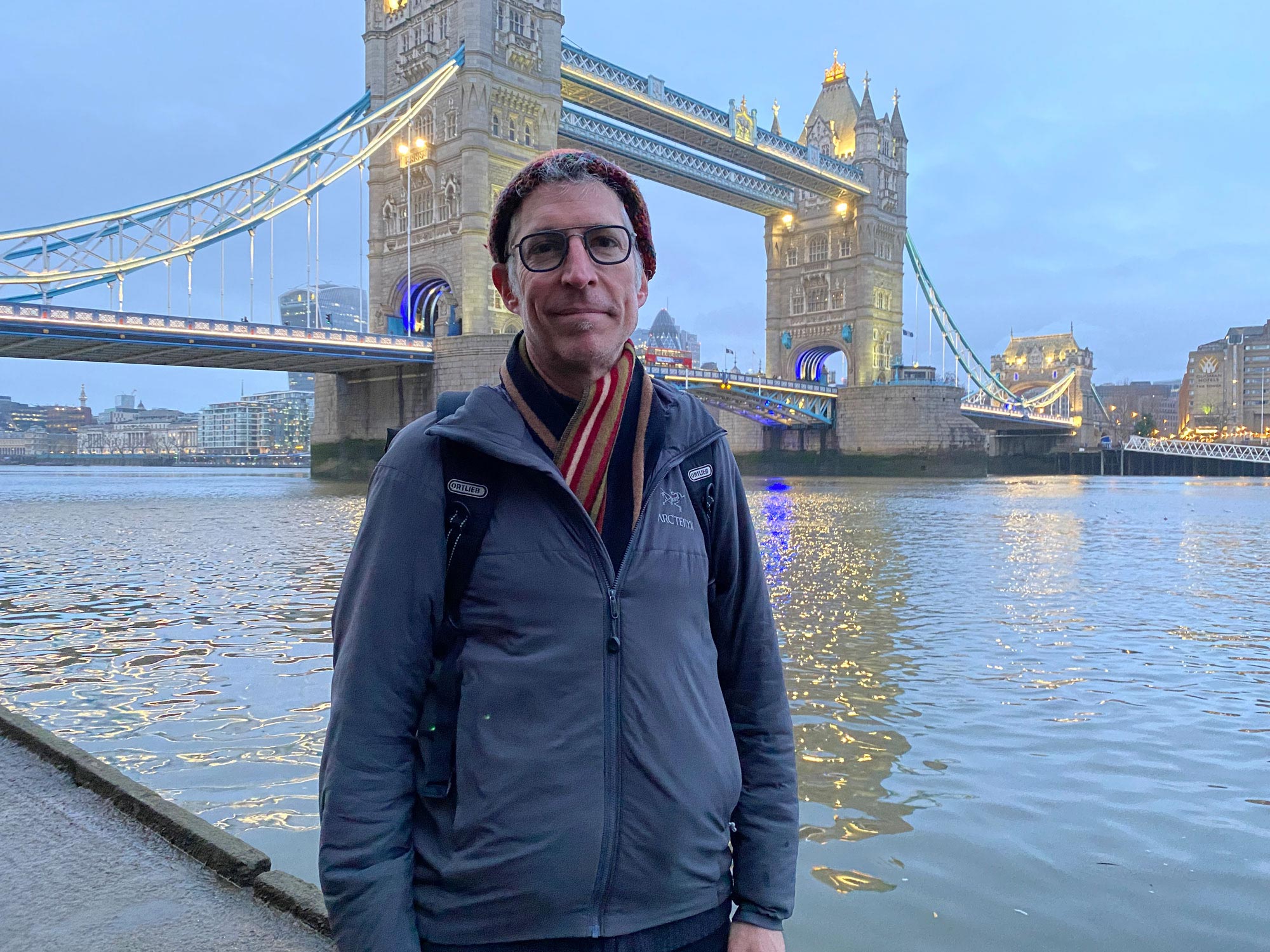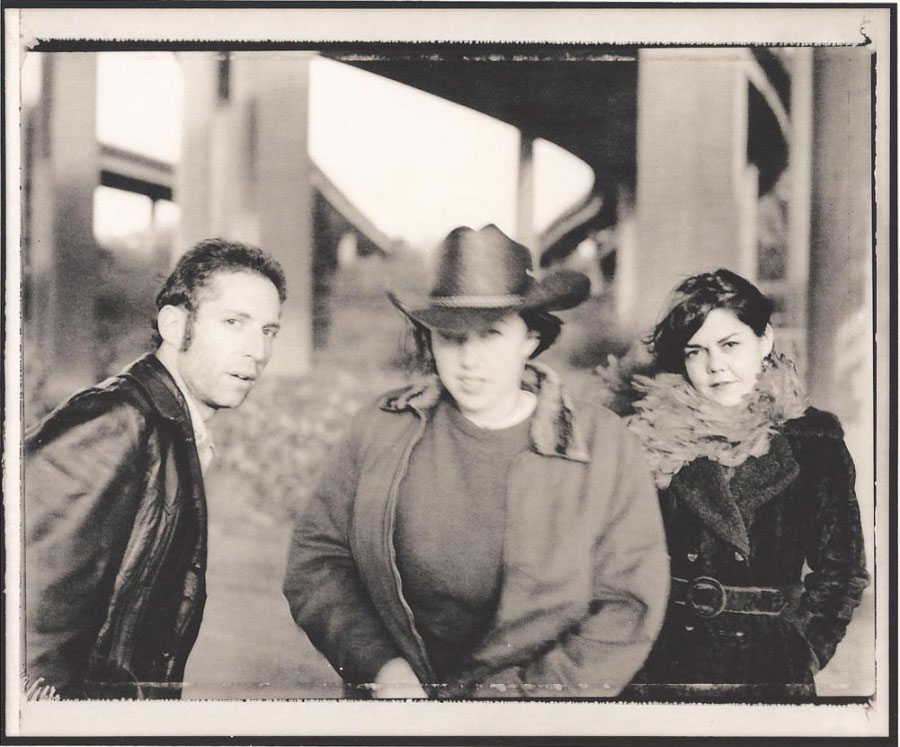

Mike Katell, ’13, ’17, ’20, a fixture in Seattle’s ’90s music scene, was widely known throughout the local arts community for his own creative work as well as for his support for other artists. In 2020, with a UW Ph.D. in hand, he moved to England for a fellowship at the Alan Turing Institute and to continue exploring the meaning and value of technology in peoples’ lives. He died in London of natural causes on August 1, according to his friend and executor of his estate, Daniel Thornton, ’12.
Born in New Jersey in 1965, Katell studied music at Bard College. He moved across the country to Seattle in 1989 and fell into the city’s lively music scene. Katell played guitar and sang in bands including RadialArmSaw while also volunteering as a DJ for KCMU, the student-run radio station at the University of Washington. In the early 1990s, Katell co-organized a station walkout with Censorship Undermines Radio Stations Ethics to protest programming changes and staff dismissals.
Matt Dresdner, bassist for the punk rock band The Gits, recalls Katell’s musical tastes as a late-night DJ. “I was challenged and inspired by the eclectic assortment of avant-garde and underground music Mike would play, and thrilled when he would occasionally throw on a track by my band,” he says. Dresdner introduced Katell to fellow musicians Sally Johnson and Emily Marsh and the three later formed the band Faster Tiger.

Faster Tiger (left to right: Mike Katell, Sally Johnson and Emily Marsh) released one album, “Little Things,” in 1998. Photo by Lance Mercer Photography.
Gretta Harley, the Seattle musician who co-wrote and produced the rock musical “These Streets,” based one character on Katell. While writing her play, she spoke to Katell about women musicians during the grunge era and recorded their interview. “He believed in Kurt Cobain’s statement that ‘the future of rock belongs to women,’” Harley says. “That long conversation inspired me to write the character of Bryan in the play—the only male character, a DJ and champion of women in rock.”
In 2009, Katell joined Canoe Social Club, a member-based club for artists and art supporters in Seattle that was founded by Jennifer Zeyl, ’03, to foster an environment for the creation of art, community and creative solutions. He helped to build and organize community through the club and went on to help Zeyl and others organize artist residencies and performances for the Lo-Fi Festival at Smoke Farm in Arlington. “Mike’s spirit of collaboration and boundless generosity will live on in the spaces we created together and in the hearts of all who knew him,” Zeyl says.
Katell would go on to push his own artistic boundaries by composing music for dance, theater and opera, including a collaboration with Seattle author Rebecca Brown and dancer Alex Martin. While working as IT director at Columbia Legal Services, a nonprofit firm that focuses on racial and economic justice, Katell became more deeply interested in computing and information architecture and their impact on social justice and human rights. Also at the law firm, Katell met his future wife, Sarah Leyrer. The two married in 2013. Katell had previously worked as a contractor for Microsoft, where he was exposed to broader ethical questions around distributed computing technology.
Katell followed his curiosity about technology and ethics at the UW’s iSchool, where he received Masters of Science degrees in information science and information management before completing his Ph.D. in information science. His research focused on artificial intelligence, algorithmic equity, and social justice and human rights implications of data and digital infrastructures. Widowed in 2020 when his partner died in a car accident, Katell somehow managed to defend his doctoral dissertation.
Soon after, he moved to London for a post-doctoral fellowship in ethics at The Alan Turing Institute, the United Kingdom’s national hub for data science and AI. At the time of his death, Katell was a visiting senior lecturer at the Digital Environment Research Institute at Queen Mary University of London. He was also co-director of the Critical Platform Studies Group, an research collective focused on exposing power dynamics reflected in technology-related research practices and in the production and allocation of information goods.
The Michael A. Katell Memorial Fellowship for Responsible and Equitable AI Futures has been established at Queen Mary University to honor Katell’s lifework and to support collaborative exploration of AI ethics and equitable AI futures.